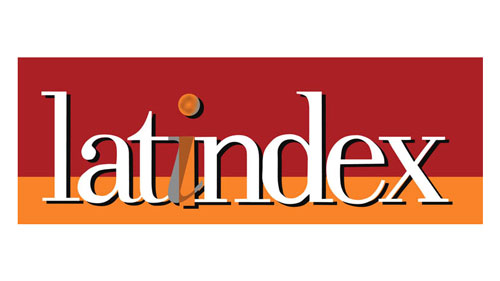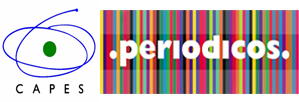Concepts of Ethics in Applied Linguistics Research
DOI:
https://doi.org/10.26512/rhla.v19i2.32691Keywords:
Ethics terminologies, Ethical dilemmas, Researcher-participant relationsAbstract
Ethics in research has drawn attention of applied linguists in the past years. Such consideration has created room to both theoretical propositions and practical actions. This article aims at arguing that the adoption and discussion of ethics in research is not solely related to physical or intentional harm and at recommending that applied linguists reflect on the ethical dimension(s) of their studies, as well as incorporate those reflections on their research reports. In order to achieve those goals, theoretical propositions are discussed and illustrated in terms of traditional and emergent ethics dimensions.
References
ANDRADE, O. G. Ética em pesquisas envolvendo seres humanos. Londrina: EDUEL, 2017.
BRITISH EDUCATIONAL RESEARCH ASSOCIATION. Ethical guidelines for educational research. 4th ed. 20 jun 2018. Available at: <https://www.bera.ac.uk/researchersresources/publications/Ethical -guidelines-foreducational-research-2018>. Accessed on 06 jan 2020.
BRITISH EDUCATIONAL RESEARCH ASSOCIATION. Ethical guidelines for educational research. 2011. Available at:<https://www.bera.ac.uk/wp-content/uploads/2014/02/BERA-Ethical-Guidelines-2011.pdf?noredirect=1>. Accessed on 02 mar 2018.
CAMERON, D. et al. Researching language: issues of power and method. New York, NY: Routledge, 1992.
CHIMENTÃO, L. K.; REIS, S. Beyond bureaucratic ethics in qualitative research involving human beings. Alfa, v. 63, n. 3, p. 697-715, 2019.
CHRISTIANS, C. G. Ethics and Politics in Qualitative Research. In: DENZIN, N. K.; LINCOLN, Y. S. (Ed). Handbook of qualitative research. Thousand Oaks, SAGE, 2000, p. 253-291.
CLARK, M. C.; SHARF, B. F. The dark side of truth(s): ethical dilemmas in researching the personal. Qualitative inquiry, n. 13, v.3, p.399-416. 2006.
CONSELHO NACIONAL DE SAÚDE. Resolução CONEP nº 001/1988, de 14 de janeiro de 1987. Dispõe sobre normas em pesquisa envolvendo seres humanos. Diário Oficial da República Federativa do Brasil, Brasília, 14 jan 1988.
CONSELHO NACIONAL DE SAÚDE. Resolução CONEP nº 510/2016, de 07 de abril de 2016. Dispõe sobre normas em pesquisa envolvendo seres humanos. Diário Oficial da República Federativa do Brasil, Brasília, 07 apr 2016.
DE COSTA, P. I. Making ethical decisions in an ethnographic study. TESOL Quarterly, Virginia, n.2, v.48, p.413-422. 2014.
DE COSTA, P. I. Ethics and Applied Linguistics Research. In: PALTRIDGE, B.; PHAKITI, A. (Ed.). Research methods in applied linguistics. New York: Bloomsburry, 2015, p.245-257.
DE COSTA, P. I. (Ed.). Ethics in Applied Linguistics research: language researcher narratives. New York, NY: Routledge, 2016.
DOUCET, H. Les silences éthiques de l’éthique de la recherche. Revue Internationale D’Éthique Sociétale et Gouvernamentale, [s.l.], v. 2, n. 2, 2000, p. 1-8.
DWYER, A. Ética y aspectos prácticos del trabajo de campo cooperative. In: HAVILAND, J.; FARFAN, A. F. (Ed.). Bases de la documentación linguística. Mexico City: Instituto Nacional de Lenguas Indígenas, 2007, p. 49-89.
EGIDO, A. A. O eu e o outro: uma breve história da ética em pesquisa em linguística aplicada. 2019. 353 f. Dissertação (Mestrado em Estudos da Linguagem) ”“ Universidade Estadual de Londrina, Londrina, 2019.
EGIDO, A. A.; REIS, S. Procedimentos éticos em pesquisa em estudos da linguagem. In: ALMEIDA FILHO, J. C. P.; OLIVEIRA, L. E.; FONSECA, A. L. S. B. (Org.). História, políticas, ética e epistemologia de área na formação docente. Campinas: Pontes, 2019, p. 103-123.
FOUCAULT, M. Madness and civilization. New York, NY: Pantheon, 1988 [1961]. Translated from Historie de la Folie.
GUILLEMIN, M.; GILLAM, L. Ethics, reflexivity, and “ethically important moments” in research. Qualitative inquiry, California, n.10, v.2, p.261 280. 2004.
HAGGERTY, K. D. Ethics creep: governing social science research in the name of ethics. Qualitative sociology, Netherlands, v.27, n.4, p.391-414. 2004.
HAMID, M. O. Fieldwork for language education research in rural Bangladesh: ethical issues and dilemmas. International Journal of Research & Method in Education, California, v. 33, n. 3, p. 259-271, 2010.
HELSINKI DECLARATION. Recommendations guiding doctors in clinical research. 2018.
KUBANYIOVA, M. Rethinking Research Ethics in Contemporary Applied Linguistics: The Tension Between Macroethical and Microethical Perspectives in Situated Research. The Modern Language Journal, London, n.92, v.4, 2008, p.503-518.
LÉVY, J. J.; BERGERON, M. Éthique de la recherche et responsabilité sociale du chercheur: perspectives canadiennes et québécoises. Revue Internationale D’Éthique Sociétale et Gouvernamentale, [s.l.], v. 12, n. 1, 2010, p. 1-7.
LINCOLN, Y. S.; GUBA, E. G. Paradigmatic Controversies, Contradictions, and Emerging Confluences. In: DENZIN, N. K.; LINCOLN, Y. S. (Ed). Handbook of qualitative research. Thousand Oaks, SAGE, 2000, p. 253-291.
NUREMBERG CODE. 1949. Available at: <https://history.nih.gov/research/downloads/nuremberg.pdf>. Accessed on 28 apr 2020.
ORTEGA, L. For What and for Whom Is Our Research? The Ethical as
Transformative Lens in Instructed SLA. The Modern Language Journal, v.89, n.3, p.427-443, 2005.
REIS, S.; EGIDO, A. A. Ontologia, Epistemologia e Ética como determinantes metodológicos em Estudos da Linguagem. In: REIS, S. (Org.). História, políticas e ética na área profissional da linguagem. Londrina: Eduel, 2017. p. 227-250.
UNITED NATIONS. Universal declaration of human rights. 1948.
Downloads
Published
Issue
Section
License
Copyright (c) 2020 Revista Horizontes de Linguistica Aplicada

This work is licensed under a Creative Commons Attribution-NonCommercial-NoDerivatives 4.0 International License.

A Revista Horizontes de Linguística Aplicada de http://seer.bce.unb.br/index.php/horizontesla/index é licenciado sob uma Licença Creative Commons Atribuição-Uso não-comercial-Vedada a criação de obras derivadas 3.0 Unported.
- Autores mantém os direitos autorais e concedem à revista o direito de primeira publicação, sendo o trabalho simultaneamente licenciado sob a Creative Commons Attribution License o que permite o compartilhamento do trabalho com reconhecimento da autoria do trabalho e publicação inicial nesta revista.
- Autores têm autorização para assumir contratos adicionais separadamente, para distribuição não exclusiva da versão do trabalho publicada nesta revista (ex.: publicar em repositório institucional ou como capítulo de livro), com reconhecimento de autoria e publicação inicial nesta revista.




